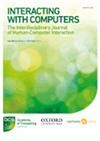适应性电子学习和阅读障碍:一个实证评估和对未来工作的建议
IF 1.3
4区 计算机科学
Q3 COMPUTER SCIENCE, CYBERNETICS
引用次数: 0
摘要
自适应电子学习作为一种帮助阅读障碍学习者的工具越来越受欢迎。它根据学习者的特点提供更个性化的学习体验。每个有阅读障碍的学习者都有自己独特的特点,理想情况下应该为其量身定制材料。然而,对阅读障碍学习者的特征,特别是他们的阅读障碍类型和阅读技能水平的适应是有限的。通过基于学习者的阅读障碍类型和阅读技能来检验学习材料改编的学习效果,本研究填补了这一研究不足领域的知识空白。通过对47名阿拉伯语受试者的对照实验进行了实证评估,并使用以下指标进行了评估:学习增益和学习者满意度。研究结果表明,与未经改编的材料相比,将学习材料与阅读障碍类型和阅读技能水平相结合,可以显著提高短期和长期学习成绩,并提高学习者的满意度。有证据表明,这一好处也延伸到学习者阅读看不见的材料的程度。本文还讨论了适应如何影响阅读障碍学习者的含义以及未来研究和实践的重要途径。本文章由计算机程序翻译,如有差异,请以英文原文为准。
Adaptive E-Learning and Dyslexia: an Empirical Evaluation and Recommendations for Future Work
Adaptive e-learning is becoming increasingly popular as a tool to help learners with dyslexia. It provides more customized learning experiences based on the learners’ characteristics. Each learner with dyslexia has unique characteristics for which material should ideally be suitably tailored. However, adaptation to the characteristics of learners with dyslexia—in particular, their dyslexia type and reading skill level—is limited. By examining the learning effectiveness of adaptation of learning material based on the learner’s type of dyslexia and reading skill, this study fills a knowledge vacuum in this under-researched area. An empirical evaluation through a controlled experiment with 47 Arabic subjects has been undertaken and assessed using the following metrics: learning gain and learner satisfaction. The findings reveal that adapting learning material to the combination of dyslexia type and reading skill level yields significantly better short- and long-term learning gains and improves the learners’ satisfaction compared to non-adapted material. There is evidence that this benefit also extends to how well learners read unseen material. This paper also discusses implications and important avenues for future research and practice related to how adaptation influences learners with dyslexia.
求助全文
通过发布文献求助,成功后即可免费获取论文全文。
去求助
来源期刊

Interacting with Computers
工程技术-计算机:控制论
CiteScore
2.70
自引率
0.00%
发文量
12
审稿时长
>12 weeks
期刊介绍:
Interacting with Computers: The Interdisciplinary Journal of Human-Computer Interaction, is an official publication of BCS, The Chartered Institute for IT and the Interaction Specialist Group .
Interacting with Computers (IwC) was launched in 1987 by interaction to provide access to the results of research in the field of Human-Computer Interaction (HCI) - an increasingly crucial discipline within the Computer, Information, and Design Sciences. Now one of the most highly rated journals in the field, IwC has a strong and growing Impact Factor, and a high ranking and excellent indices (h-index, SNIP, SJR).
 求助内容:
求助内容: 应助结果提醒方式:
应助结果提醒方式:


